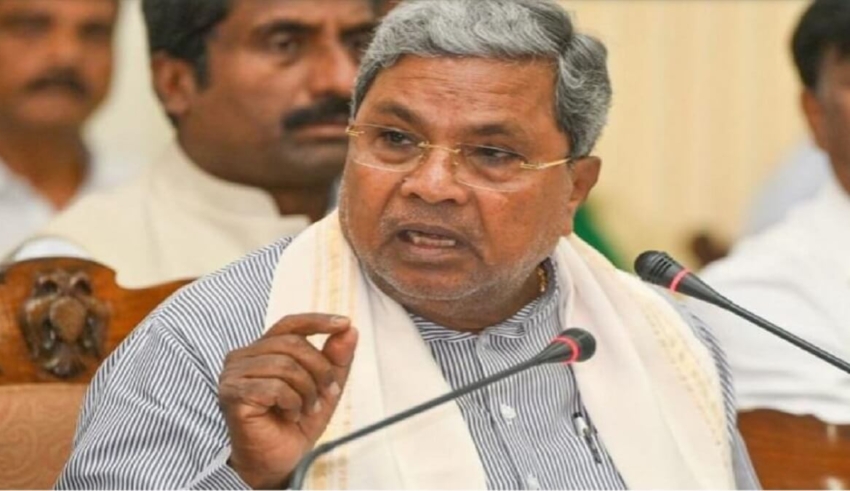
The statement made by the Karnataka Chief Minister, Siddaramaiah, saying that Karnataka will scrap the National Education Policy 2020 (NEP) from the next academic year, wasn’t unexpected. The Congress manifesto in the recently concluded May 2023 Assembly elections had already included this as a ‘promise.’
On why from next year, the CM said that since the academic year has already begun, the scrapping will take place next year. In fact, soon after forming a majority Congress government in the state in May this year (135 seats in 224 seat Assembly), the state education department under the new government was tasked to remove ‘controversial’ chapters added by the previous BJP government of Basavaraj Bommai in the school textbooks. Now, is the turn of NEP!
Karnataka, which was in fact the ‘headquarter’ as well as the leading participant in the NEP 2020 formulation and also became the first state in the country to adopt it fully for implementation, has to do, is very ironical? If uprooted from the state completely, it will mean wasting a lot of effort and resources that went to these efforts and implementation over the past two years.
Why is the Congress government of Karnataka against NEP 2020? Its argument is why our state became a lab for this untested policy when no other state has gone that far? However, the obvious and direct answer is, for scoring political points and deflating the showpiece ‘high talk’ on goodness and appropriateness of NEP. The principal opposition party is amplifying its ideological battle vis-a-vis the BJP.
There has been a vast pool of academics, activists, networks and groups—all together labelled by the BJP and Sangh network organizations as ‘left liberals’, who controlled the education policy establishment, content of textbooks, philosophical values and of course the ‘spills’ by way of positions in bodies like CABE and as advisors, authors and celebrity panelists for a very long time. As most of this lobby was cultivated under Congress rule, they continue to call shots at every given opportunity. Hence, as a point of prestige and in the hope of winning the lost ground, the attack on NEP 2020 by them has been going on from day one itself.
The RSS and BJP on the other hand have been also, for usually long time, themselves waiting for their opportunity to get hold of education policy architecture and create its own ecosystem. Their intention again largely rested on correcting the bland education courseware of the country as they viewed it by reviving the ‘purposely neglected’ ancient Indic knowledge by ‘the left-liberal and colonizer legacy establishment’ and also correcting some historic narratives through revised textbooks to establish connect with cultural roots and past glory. Therefore, when they got the chance, they lapped it and created a document (NEP 2020) to erase Macaulay’s education legacy and indigenize the education content through hybridized approach of old and new.
The Congress and left lobby believe that NEP 2020 is Nagpur (RSS) Education Policy and therefore must be killed without a proper SWOT analysis. This kind of public stance by the ruling party in Karnataka has and will embolden other non-BJP ruled states to follow suit. Tamil Nadu Chief Minister, M K Stalin has already talked about transferring education from concurrent to state list. Kerala has decided not to use NCERT textbooks. The build-up will not be in the national interest in the first place.
There may have been a genuine grudge of excluding many experts and well-known educators or groups in the consultation process in the policy formulation. It may be true that the policy bears a stamp of the ‘Nagpur’ HQ, but at the end of the day, this is also a reality that this policy document has been prepared scientifically and after studying and by including of whatever best is available in the world. The policy formulation has followed standards and a lot of discussion and feedback has gone into its preparation.
That means, it is not wise to junk the policy without taking a minute look and consideration for positives as well as negatives. There is a need to engage in healthy discussions over the deficiencies and weaknesses of this national document and not replace it overnight. People and institutions have invested time, energy and resources in its processes, and it will be a big loss if they are to reinvent and reinvest. So, using the term scrapping is harsh. A review committee can look into it and furnish a report/recommendation. Then, a decision based on that report will look civic, digestible and educationally convincing.
There has been a genuine demand and thought behind having a state specific policy around localized context, content and delivery of education. TN CM Stalin put it rightly in his Independence Day address by arguing subjects like education that have a direct connect to people should be brought under Constitution’s state list. This is a good argument and calls for further building on it, not as a political issue but more as a scientific solution to better education delivery and its quality.
The ordinary citizens of this country are fortunate to have a vast canvas and area both for education and work mobility. A degree of uniformity by way of universal standards is also an accepted fact in education internationally. Reinventing the wheel is not desirable. Digitization and emerging technologies have already closed distances. These are realities of 21st century.
Learning crisis is about teacher crisis. And, NEP 2020 has in some innovative ways of dealing with it. So, don’t undermine the progressive mindset that is seeing newer possibilities of resolving the old and stubborn challenges. Making it a political issue doesn’t augur well for either the country or the primary stakeholders—the children and youth. The new India really needs a different educational approach to past one. Put the national goals both short and long term before electoral politics.










